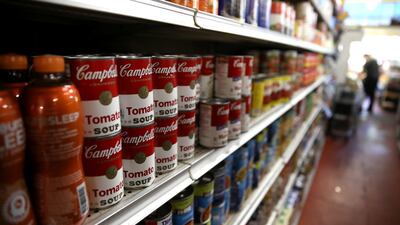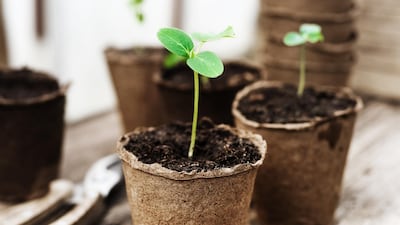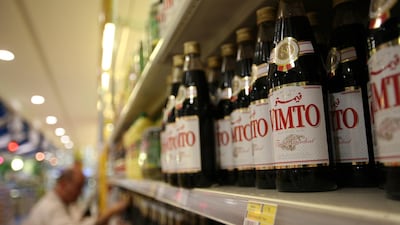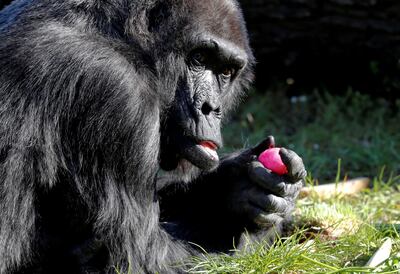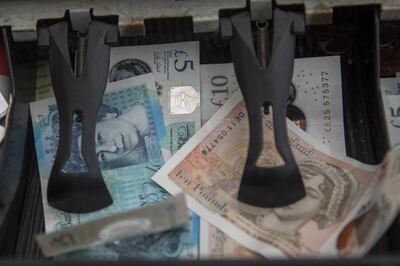Covid-19 has changed the lives of all of us. But sometimes it has done so in unexpected ways.
Life in the age of coronavirus had locked down not just people but also crime and pollution.
It has made us reach back to the comforts of the past and forward to a radically changed future.
Bizarrely, it may even be saving more lives than it takes. Here are 20 unexpected side effects of the current pandemic.
School shootings
With most American schools closed, it also means an end to the familiar, if depressing, news of school shootings.
This was the first March since 2002 to not see a gunman open fire in a US school according to an investigation by the Washington Post.
Feeding time at the zoo
A German zoo is warning its financial difficulties may lead it to feeding its animals to each other.
Neumünster Zoo has said money for food is running short due to there being no visitors and that it has made a list of animals it would consider slaughtering first.
Director Verena Kaspari said: "If it comes to it, I'll have to euthanise animals, rather than let them starve.
"At the worst, we would have to feed some of the animals to others."
Divorce in China
As China eases its lockdown, divorce rates are beginning to climb. In Milou, a city in Hunan province, officials complained they couldn’t even grab a glass of water as they processed the growing pile of paperwork.
One Shanghai divorce lawyer reported his case load increasing by 25 per cent as couples decided to call it a day.
“The more time they spent together, the more they hate each other,” he told a local newspaper.
Crime in Peru
Crime has fallen dramatically as a result of Covid 19 lockdowns. In Peru, crime is reported to be down 84 per cent, with a mortician in Lima who normally deals with around 15 murders and traffic deaths on a typical a day, recently saying he was able to take a six hour nap one afternoon.
Smaller earthquakes easier to detect
Scientists are now able to measure even the faintest earthquakes. Normally, the background noise of city life makes some seismic activity hard to detect, but the advent of social distancing means urban life is detectably quieter.
Seismologists say their instruments have measured a decline of up to 50 per cent in human activity in some European cities, and around 80 per cent in Nepal.
Air pollution lives saved
With factories closed and industry at a standstill, many cities are seeing their cleanest air for decades.
In China alone, it has been estimated by a scientist at Stamford University that this has saved the lives of up to 77,000 people that would otherwise be cut short by pollution, compared to around 3,300 deaths caused by coronavirus.
But at the same time, pre-existing conditions caused by poor air may make Covid-19 sufferers more likely to die.
Death of cash?
Could Covid-19 spell the end of cash? Customers are being encouraged to use touch payments for even small purchases.
There is also evidence from the country's biggest ATM network provider, Link, that UK cash usage has more than halved since the start of the outbreak.
With research suggesting that some viruses can survive on bank notes for up to 17 days, the US Federal Reserve has also been quarantining dollar bills known to have been in Asia.
Sales of comfort food soar
Sales of so-called comfort foods are booming, helped by the their longer shelf life.
The New York Times reported that products like instant macaroni cheese, tinned spaghetti and tomato soup have seen an upsurge of sales.
Campbell soups saw an increase of 59 per cent in March compared with a year ago.
Sales of Spam are also reported to have risen by nearly 40 per cent, according to Bloomberg.
Speeding motorists on empty roads
Formula One racing may have been suspended, but Britain’s empty motorways are proving too much of a temptation for some motorists.
Police are still hunting for one driver who abandoned his car after being caught driving at 243kph on the M1 near London - more than twice the official limit.
Elsewhere, a Mercedes was pulled over for driving at 160kph in a 60kph zone.
Google symptom search
Google searches could help track the spread of Covid 19. People who suspect they may have the virus are entering their symptoms as searches, allowing scientists to track the progress of the disease.
Google searches may also provide clues to previously unrecognised symptoms, like a loss of smell, now thought to be experienced in between 30 and 60 per cent of cases.
No more drive time music
Lockdowns have ended the morning rush hour in many countries, but also changed drive time listening habits.
Streaming services like Spotify have reported that peak usage has switched from 7am to more than a hour later as people work from home.
Some songs are also more popular as a result of the disease. Streaming of Don't Stand So Close to Me by The Police has risen by 135 per cent, and Abbracciame ("Hug me") by the Italian pop star Andrea Sannino by 820 per cent on March 13 alone.
Curious goats and hungry monkeys
Wildlife has been emboldened by the disappearance of humanity behind closed doors.
The wild goats of Llandudno have become world famous after invading the Welsh seaside town. But the lockdown has not been good for all species.
Monkeys who rely on tourists for food were seen battling for a single yogurt pot in Thailand, while hungry Seka deer roam the streets of the Japanese town of Naga looking for treats.
Seed sales growing
Growing your own vegetables is increasingly being seen as an alternative to going to the supermarket.
Packets of seeds are reported to be flying off the shelves as people attempt self sufficiency.
One Canadian mail order seed firm reported orders increasing by 599 per cent in a single day.
As the Modern Farmer website put it, "seeds are the new toilet paper".
A curse on Covid-19
Language experts in the Netherlands are predicting an upsurge of new curse words based round coronavirus.
Dutch swearing historical draws heavily from disease, with expressions like “krijg de tering” (get consumption) and “optyfussen” (typhus off) among the printable insults.
"Perhaps someday Dutch kids will savage each other on the playground with cries of coronalijer," the Economist magazine observed.
New dictionary words
Meanwhile the English language has already expanded as a result of Covid-19.
New phrases to be added to the Merriam Webster dictionary this year already include Patient zero, Contact Tracing and Super-spreader.
Fashion becomes more formal
Designers are predicting a trend to more formal clothing when life returns to normal.
They believe that people will be fed up with working from home in casual clothes and will want to dress up more.
New York designer Vivian Tam said: “People are telling me we’ll all be tired of staying home, wearing the same clothes.”
Baby names
A couple in India have named their twin boy and girl newborns Covid and Corona, while a baby girl born in the Philippines last month was named Covid Rose.
Not to be outdone, another Indian couple have called their newborn son Lockdown, apparently in tribute to the efforts of prime minister Narendra Modi.
Vimto in trouble
Covid-19 is likely to impact one of Ramadan's most popular traditions.
Soft drink firm Nichols has cancelled share dividends and issued a profit warning as a result of the outbreak.
The reason? Nichols owns Vimto, the beverage of choice for millions during the holy month.
With sales likely to be hit, the company says it is “not currently able to provide financial guidance for the year ended 31 December 2020”.
A Tangled story
Disney fans are claiming that an animated film by the studio predicted the virus a decade ago.
Social media is buzzing with speculation about the 2010 feature Tangled, based on the Rapunzel fairy tale.
In particular they focus on the heroine, locked away in a tower, and unable to go out to visit the nearby town of…Corona.
Emoji crisis looms
Get ready for an Emoji shortage later in the year. Unicode Consortium, the non-profit organisation which encodes new emojis, has announced the postponement of the next group of emojis by six months.
Emojis are typically added to mobile devices in September, but this will now likely not happen until early 2021.
Emojis approved last year could still be added later in 2020, including a gender neutral Santa Claus and a ninja.







